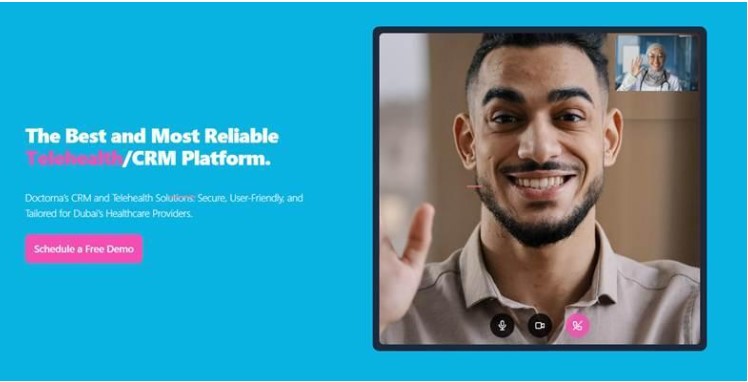
In today’s digital-first healthcare world, building strong patient relationships is more than just a nice-to-have—it’s a must. In fact, studies show that highly engaged patients are more likely to follow treatment plans, attend follow-ups, and report better health outcomes.
But here’s the challenge: generic, one-size-fits-all communication no longer works.
That’s where personalized healthcare communication comes in. By understanding each patient’s unique needs and preferences, healthcare providers can create meaningful interactions that truly resonate—and this is exactly where healthcare CRM software plays a game-changing role.
In this blog, we’ll explore how providers can use patient engagement strategies powered by CRM tools to segment their patient base and deliver tailored messages through channels like WhatsApp, email, and SMS—ultimately improving trust, retention, and health outcomes.
Why Personalized Communication Matters in Healthcare
Gone are the days when a single follow-up call or generic newsletter was enough. Patients today expect timely, relevant, and respectful communication—just like they do in any other service they use.
Here’s what personalized communication brings to the table:
- Higher patient satisfaction and loyalty
- Better adherence to treatment plans
- Improved health outcomes
- Stronger trust between patient and provider
- More efficient use of resources
Personalized messaging shows patients they are seen, heard, and valued—something that’s key to building long-term engagement.
Segmenting Patients with CRM: The First Step to Personalization
A powerful Healthcare CRM system helps you understand your patients on a deeper level. It enables segmentation—grouping patients based on specific criteria so communication can be more targeted and effective.
Here are common ways to segment patients:
- Demographics (age, gender, location)
- Health conditions (e.g., diabetes, hypertension, recovery stage)
- Treatment stage (newly diagnosed, ongoing treatment, post-care)
- Communication preferences (channel, language, timing)
- Engagement history (missed appointments, inactive patients)
- Lifestyle factors (fitness goals, family history, smoking habits)
Example:
- 60-year-old diabetic patient in Dubai may need regular reminders about medication and lifestyle tips via WhatsApp, while a 25-year-old with a sports injury might prefer SMS updates and video rehab instructions.
Choosing the Right Communication Channels
Different patients respond better to different communication platforms. A Healthcare CRM lets you manage all these channels efficiently from one place.
1.Email test results, educational content, and health tips great for newsletters,
Best practices:
- Use the patient’s name
- Segment based on health needs
- Keep content concise and actionable
- SMS/Text Messaging Ideal for:
- Appointment reminders
- Prescription pick-ups
- Post-care check-ins
- Quick health updates
- Phone Calls
Best for complex or emotional conversations. For example:
- Discussing diagnosis
- Following up after surgery
- Reassuring anxious patients
- WhatsApp (A Growing Favorite)
WhatsApp is emerging as a key tool in personalized healthcare communication. Why?
- Instant, two-way communication
- Ability to share videos, PDFs, voice notes
- High open rate compared to email or SMS
Use WhatsApp to:
- Send appointment and medication reminders
- Share pre/post-surgery instructions
- Follow up on symptoms
- Answer common questions
- Send personalized health tips
Important: Always get explicit patient consent before using WhatsApp. Data privacy matters.
- Patient Portals
Let patients access their data, download reports, and message providers securely. A great way to boost engagement and trust.
How to Build a Personalized Communication Strategy
Here’s how to turn CRM data into meaningful patient experiences:
- Use Personalized Messaging: Mention patient names, reference their past visits, and tailor content to their health goals. A simple “Hi Sarah, your next sugar test is due” feels way more personal than a generic reminder.
- Share Relevant Content: Send articles, videos, or recipes tailored to the patient’s condition or recovery stage.
- Communicate at the Right Time: Set automated follow-ups based on appointment dates, treatment plans, or past activity.
- Give Patients Control: Let patients choose how and when they want to be contacted—SMS, email, WhatsApp, or phone.
- Ask for Feedback: Use surveys and polls to understand patient preferences and refine your strategy accordingly.
- Keep the Tone Empathetic: Even in automation, warmth and care matter. The goal is to make patients feel supported, not processed.
Measuring the Impact of Personalized Engagement
If you’re investing time in patient engagement strategies, you need to know they’re working.
Here’s what to track:
- Patient satisfaction scores
- No-show or appointment adherence rates
- Medication refill or adherence rates
- Repeat visit or retention rates
- Feedback forms and surveys
- WhatsApp read rates or email open rates
CRM systems like Doctorna’s make this easy, with built-in dashboards that track engagement and highlight improvement areas.
Overcoming Challenges and Best Practices
Implementing personalized communication may seem overwhelming—but it’s entirely manageable with the right tools and plan.
Common Challenges:
- Managing large volumes of patient data
- Keeping up with data privacy regulations
- Getting staff on board
- Ensuring consistency across communication channels
Best Practices:
- Set clear engagement goals (e.g., increase follow-up rates by 20%)
- Choose a CRM built for healthcare (like Doctorna)
- Train your team to use the system effectively
- Create messaging templates that can be personalized
- Stay compliant—especially when using platforms like WhatsApp
- Monitor performance and adjust strategies monthly
Conclusion
Personalized communication isn’t just a marketing tactic—it’s a core part of effective healthcare. When patients feel heard, understood, and supported, they’re more likely to stay engaged and follow their care plans.
Healthcare CRM software, like Doctorna, makes this easy helping you deliver relevant, timely messages that truly make a difference.
Ready to improve patient engagement in your practice?
Explore how Doctorna’s CRM can help you segment patients, personalize communication, and boost treatment adherence with ease.